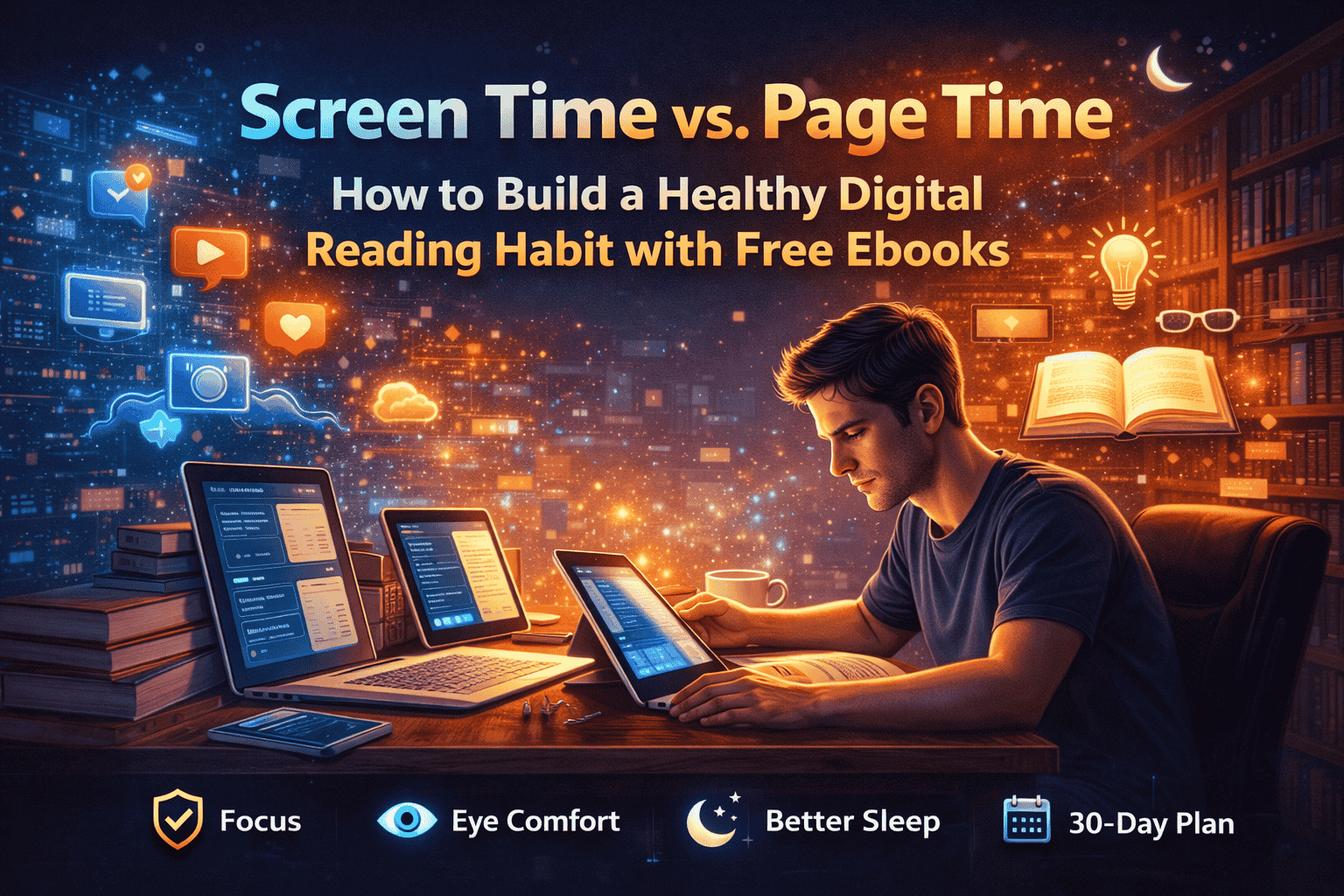How Stress Affects Physical and Mental Well-being
Introduction
Stress is a normal response to life challenges, but when it becomes chronic, it can affect both physical and mental well-being negatively. In today's world where everyone is in a hurry, stress has become a normal occurrence that has affected millions of people. While some level of stress is beneficial in terms of motivating people to perform better, excessive or prolonged stress can lead to serious health problems.
It is crucial to comprehend the impact of stress on well-being in a way that can help control it effectively. In this blog article, we will look at how stress affects mental and physical well-being, the fundamentals, and managing stress in an effective way. We will also put the focus on the necessity of reading books on mental health on Junkybooks in order to know better about managing stress and mental health.
The Science Behind Stress
When the body feels threatened or challenged, it unleashes a fight-or-flight reaction. The reaction is mediated through the autonomic nervous system and leads to the release of stress hormones like cortisol and adrenaline. The hormones result in the rapid response of the body in case of an emergency by increasing heart rate, blood pressure, and energy supply.
While short-term stress is beneficial, chronic stress exposure leads to imbalances in the body and causes physical and mental illness. Stress keeps the body in a hyperaroused state, which has negative long-term effects.
Mental Effects of Stress
- Anxiety and Depression – Chronic stress is a strong predictor of anxiety disorders and depression. Prolonged exposure to stress hormones may alter brain chemistry, leading to mood fluctuations, irritability, and despair.
- Cognitive Impairment – Stress affects memory, attention, and the ability to make good decisions. It has been discovered that chronic stress can shrink the hippocampus, the region of the brain that processes learning and memory.
- Emotional Instability – Stress makes individuals more emotionally reactive, and they become prone to mood swings, frustrated, and irate.
- Sleep Disorders – Prolonged stress can interfere with sleep patterns and lead to insomnia, sleepless nights, and low-quality sleep. Missing sleep just adds to the stress, causing a vicious cycle.
- Social Withdrawal – Chronic stress sufferers socially withdraw, becoming isolated and lonely.
Physical Effects of Stress
- Cardiovascular Diseases – Stress increases blood pressure and heart rate, rendering individuals more prone to heart disease, stroke, and hypertension.
- Weak Immune System – Chronic stress compromises the immune system, making the body more susceptible to infections, illness, and poor wound healing.
- Digestive Disorders – Stress affects the health of the gut, leading to conditions like irritable bowel syndrome (IBS), indigestion, acid reflux, and ulcers.
- Muscle Tension and Pain – Stress caused repeatedly leads to muscle tension and stiffness, which can cause headaches, migraines, and body pain.
- Hormonal Imbalance – Stress disrupts hormonal balance, which affects metabolism, reproductive functions, and the body's overall functioning.
How Stress Leads to Unhealthy Habits
Most people cope with stress by adopting unhealthy habits, which in turn impact mental and physical well-being. Some common unhealthy reactions to stress are:
- Overeating or Bad Diet – Stress usually leads to emotional eating or bad food decisions, which lead to obesity, diabetes, and heart disease.
- Addiction – Alcohol, cigarette smoking, or drug abuse is employed as an escape by others, which results in addiction and other diseases.
- Procrastination and Avoidance – Too much stress can produce avoidance behaviors, which lower efficiency and increase guilt or self-blame.
- Excessive Screen Time – Stressed individuals may use social media or excessive television viewing as an escape mechanism, which contributes to stress levels and weakens mental clarity.
Effective Stress Management Strategies
1. Practice Mindfulness and Meditation
Mindfulness and meditation enable one to stay present and reduce stress levels. Techniques such as deep breathing, guided meditation, and yoga promote relaxation and develop emotional strength.
2. Engage in Physical Activity
Regular physical activity releases endorphins, which counteract stress. Regular walking, running, swimming, or yoga can help minimize stress and boost well-being.
3. Healthy Diet
A healthy diet consisting of whole foods, vegetables, fruits, and lean proteins may support the brain and minimize inflammation brought about by stress.
4. Sleep Hygiene
Good sleep is essential for stress management. Establishing a bedtime routine, reducing screen time before bed, and maintaining a comfortable sleeping environment can improve the quality of sleep.
5. Obtain Social Support
Talking to friends, family members, or support groups can help with emotional processing and reducing feelings of loneliness. Social support is a critical component of mental health resilience.
6. Read Mental Health Books
Self-help books and mental health material at Junkybooks are sources of information about stress management strategies, self-care, and coping. Mental health books can allow people to be able to study their feelings and develop healthier behaviors.
7. Practice Time Management
Prioritizing and scheduling activities can prevent stress overload. Breaking down activities into steps that can be followed and setting attainable goals can increase productivity and reduce stress.
8. Participate in Relaxation Activities
Hobbies like painting, reading, gardening, or playing music can divert focus away from sources of stress and cause relaxation.
9. Professional Help
When under excessive stress, seeking advice from a therapist, counselor, or psychologist might provide personalized stress management techniques.
The Role of Books in Stress Management
Reading is a great way to relax and develop oneself. Mental health books on Junkybooks offer evidence-based methods for stress reduction, anxiety management, and personal growth. Some benefits of reading mental health books are:
- Gaining Knowledge – Books have evidence-based techniques for stress management and well-being improvement.
- Self-Awareness – Reading allows one to discover about their thoughts, feelings, and triggers
- Emotional Comfort – Books can give a sense of comfort, telling individuals that they are not isolated in their wars.
Increasing Focus and Mental Clarity – Reading can distract attention from sources of stress and allow individuals to have a better perspective.
Conclusion
Stress is a natural part of life, but it does not need to overwhelm your physical and mental health. Through the realization of its impact and incorporating effective coping skills, one can enhance well-being and the quality of life. Practice mindfulness, physical exercise, nutrition, and social support, which can easily eliminate stress.
Furthermore, the reading of mental health books by Junkybooks will offer great suggestions on how to manage stress. Books are a strong tool in studying, personal development, and becoming comforted in times of difficulty. Being in charge of stress today can create a healthier, happier, and more balanced life.







